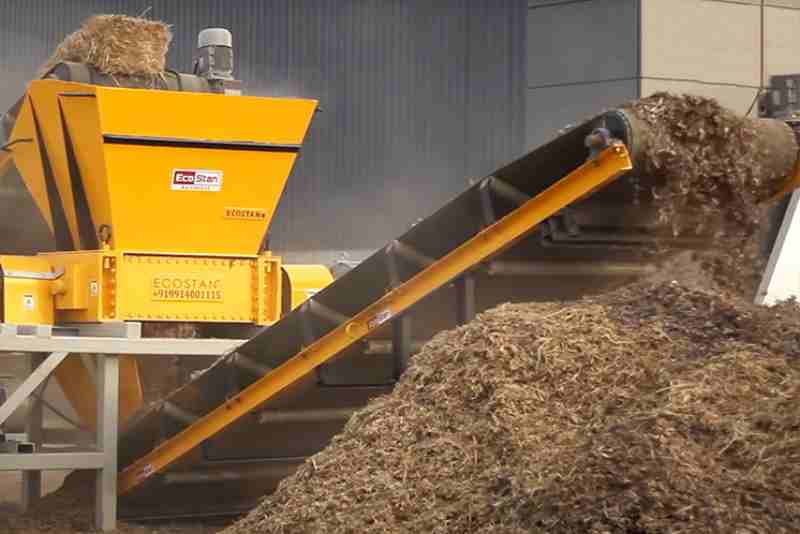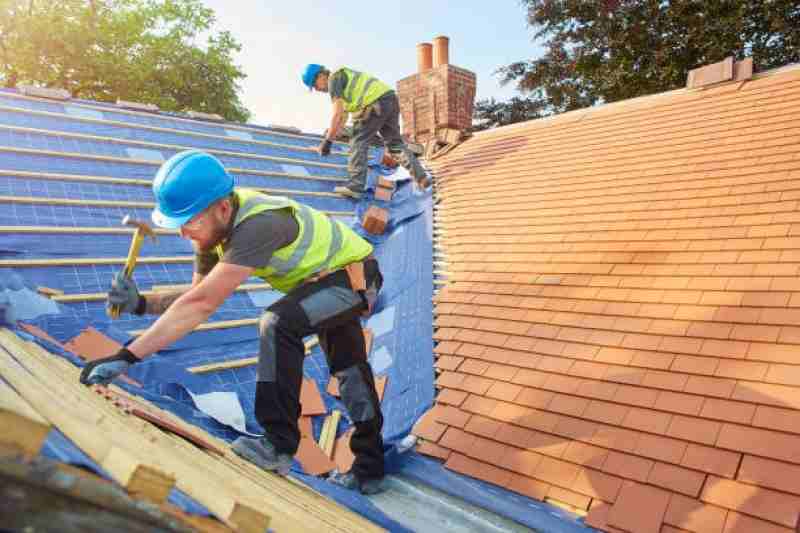Business
Why Every Biomass Plant Needs a Hammer Grinder for Sustainable Production

In today’s world, where industries are shifting toward renewable energy and eco-friendly production methods, biomass plays a key role in reducing carbon emissions and promoting cleaner energy alternatives. However, the efficiency of any biomass production system heavily depends on how well the raw materials are prepared before processing. This is where a Hammer Mill Grinder becomes an essential machine for every biomass plant aiming for sustainable, reliable, and profitable operations.
A Hammer Grinder, also known as a Hammer Mill Grinder, is designed to crush, pulverize, and refine biomass materials into uniform particle sizes. Whether a plant is producing briquettes, pellets, organic fertilizers, or biogas feedstock, the quality and consistency of raw material significantly influence the output. Let’s explore why integrating a Hammer Grinder into biomass production is not just beneficial but necessary for long-term sustainability.
1. Ensures Uniform Particle Size for Better Processing
One of the most critical requirements in biomass production is achieving a consistent particle size. Pellets, briquettes, and other biomass products require raw materials with even texture to ensure proper binding, density, and combustion efficiency.
A Hammer Grinder delivers precisely this. It shreds, crushes, and grinds biomass such as:
- Sawdust
- Wood chips
- Rice husk
- Groundnut shells
- Sugarcane bagasse
- Paddy straw
- Coconut shells
- Agricultural residues
Uniform particle size results in smoother processing, reduces machine strain, and improves the overall quality of the final product. Plants that skip this crucial step often experience inconsistent output, machinery wear, and product rejection.
2. Enhances Pellet and Briquette Quality
Quality is everything in biomass fuel production. High-quality briquettes and pellets burn efficiently, produce minimal ash, and deliver maximum calorific value. A Hammer Grinder helps achieve this by converting raw material into finely powdered or uniformly chipped form.
Here’s how it improves fuel quality:
- Better density: Properly ground biomass compresses better.
- Smooth surface finish: Pellets become smoother and more durable.
- Higher calorific value: Even particle size promotes uniform burning.
- Reduced ash production: Cleaner grinding reduces impurities.
In short, improving raw material structure directly boosts the performance of pellet mills and briquetting machines.
3. Increases Machinery Efficiency and Lifespan
When raw biomass contains different sizes, hard particles, moisture variations, or unwanted materials, it puts unnecessary pressure on downstream machines. Pellet mills and briquetting presses work best when the input material meets recommended specifications.
Using a Hammer Grinder before feeding material into the main production line helps:
- Reduce mechanical load
- Minimize breakdowns
- Lower energy consumption
- Increase overall machine lifespan
This prevents expensive repairs and saves operational costs in the long run.
4. Supports High-Volume Continuous Production
Biomass plants often work in continuous production mode to meet market demand. For smooth, uninterrupted operations, raw material preparation must be fast, efficient, and reliable. A Hammer Grinder is capable of processing large volumes of biomass material within a short time.
Modern Hammer Grinders come with features like:
- High-speed rotors
- Heavy-duty hammers
- Large feed hoppers
- Adjustable screens
These make it possible to process tons of biomass per hour. When used in large-scale production, it ensures that the plant runs smoothly without bottlenecks in the raw material stage.
5. Handles Diverse Biomass Feedstock with Ease
One of the biggest advantages of using a Hammer Grinder is its ability to handle a wide range of feedstocks. Biomass plants often rely on locally available agricultural or forest residues. These materials vary in hardness, moisture content, shape, and density.
A Hammer Grinder can easily process:
- Hard woods
- Soft woods
- Agricultural waste
- Agro-industrial waste
- Fibrous plants
- Organic residues
The machine’s adaptability makes it ideal for different biomass industries including pellet production, briquette manufacturing, composting, and animal feed preparation.
6. Reduces Waste and Promotes Resource Efficiency
Sustainability is not just about producing green energy but also about using resources wisely. Many biomass materials, if not processed, end up as waste in landfills or open fields, contributing to pollution.
A Hammer Grinder converts this waste into usable material for:
- Biomass fuel
- Organic manure
- Biochar
- Animal feed
- Compost mixes
By turning waste into valuable products, biomass plants contribute to a circular economy and reduce environmental impact.
7. Improves Combustion Efficiency in Biomass Boilers
Biomass boilers require fuel with consistent size and moisture levels to maintain stable flame, reduce smoke, and ensure high thermal efficiency. Raw biomass often burns unevenly and produces more emissions.
Using a Hammer Grinder results in:
- Smaller particle sizes
- More surface area for combustion
- Faster ignition
- Complete burning
- Higher energy output
This increases the boiler’s operational efficiency and reduces carbon footprint—an essential factor for eco-conscious industries.
8. Cost-Effective Operations and Reduced Energy Consumption
While a Hammer Grinder is an investment, it saves significant money over time. By preparing biomass properly, industries use less energy in pelletizing, briquetting, and combustion.
Cost-saving benefits include:
- Reduced machine damage
- Lower maintenance costs
- Higher production efficiency
- Efficient fuel usage
- Better material utilization
This makes it a smart long-term investment for any biomass facility.
9. Promotes Sustainable and Eco-Friendly Production
Sustainability is the backbone of biomass energy. Hammer Grinders play a major role in promoting green manufacturing by ensuring:
- Reduced waste
- Efficient use of natural resources
- Cleaner energy production
- Lower carbon emissions
When biomass is processed efficiently, it becomes a reliable alternative to fossil fuels.
Conclusion
In summary, every biomass plant needs a Hammer Grinder for achieving uniform raw material size, improving production efficiency, enhancing pellet and briquette quality, reducing waste, and ensuring long-term sustainability. Whether you’re running a small facility or a large-scale biomass production plant, investing in a Hammer Grinder is essential for stable, efficient, and eco-friendly operations.
When choosing the right machine, it is important to rely on trusted and reputable manufacturers. Ecostan Machines is a globally recognized brand known for delivering high-performance Hammer Grinders, pellet mills, briquetting machines, and biomass solutions. With their advanced engineering and commitment to quality, Ecostan Machines ensures reliable equipment that supports long-term productivity and sustainable biomass production.
Source:
Click for the: Full Story
You might like













 Close Menu
Close Menu